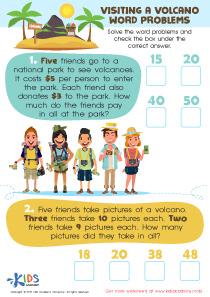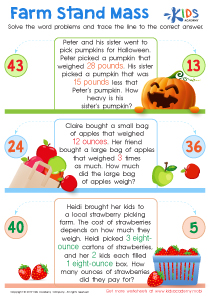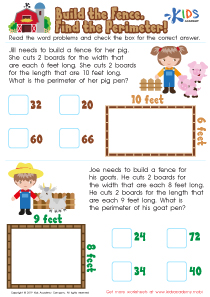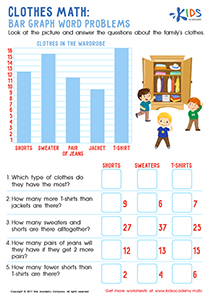Normal Addition and Subtraction Word Problems Worksheets for Ages 3-6 - Page 2
29 filtered results
-
From - To
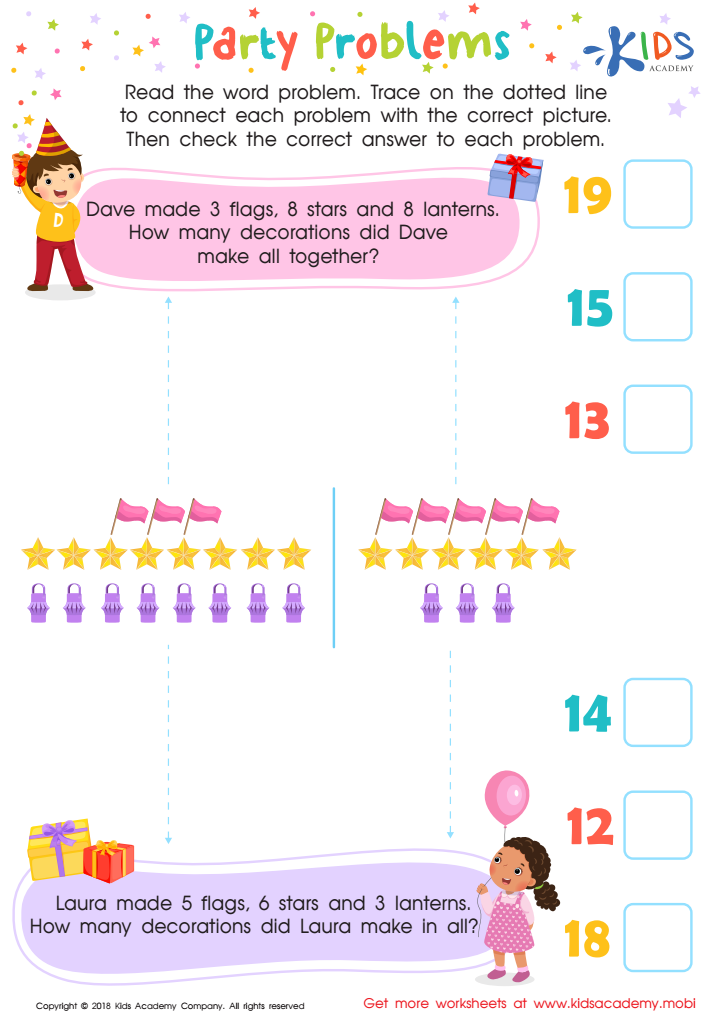

Party Problems Worksheet
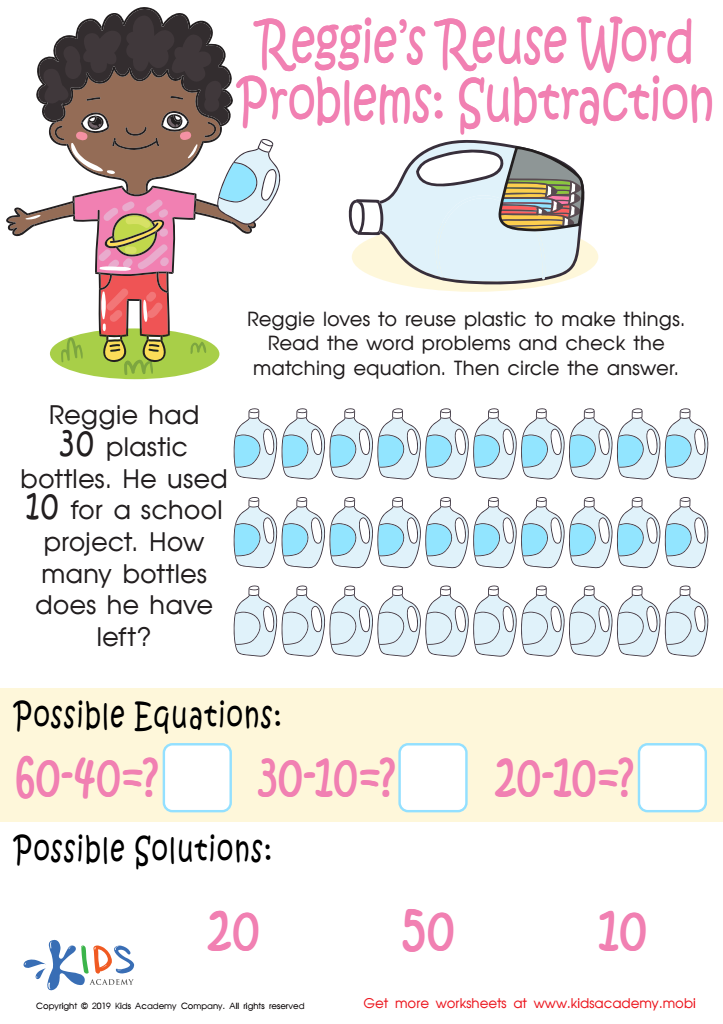

Reggie's Reuse Word Problems: Subtraction Worksheet
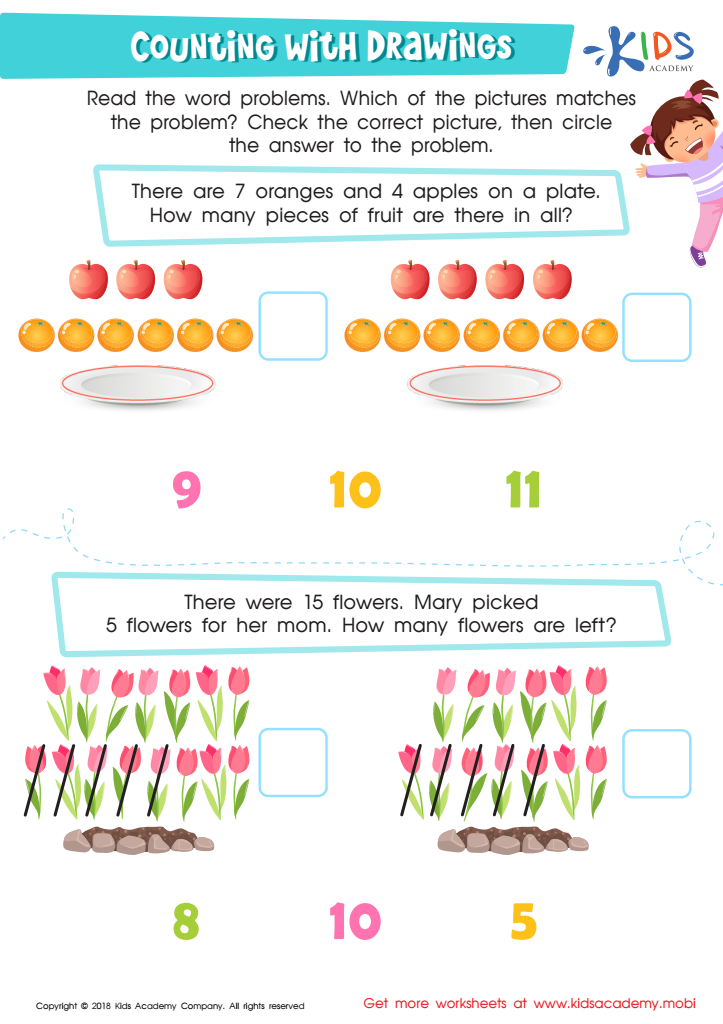

Counting with Drawings:Fruits & Flowers Worksheet
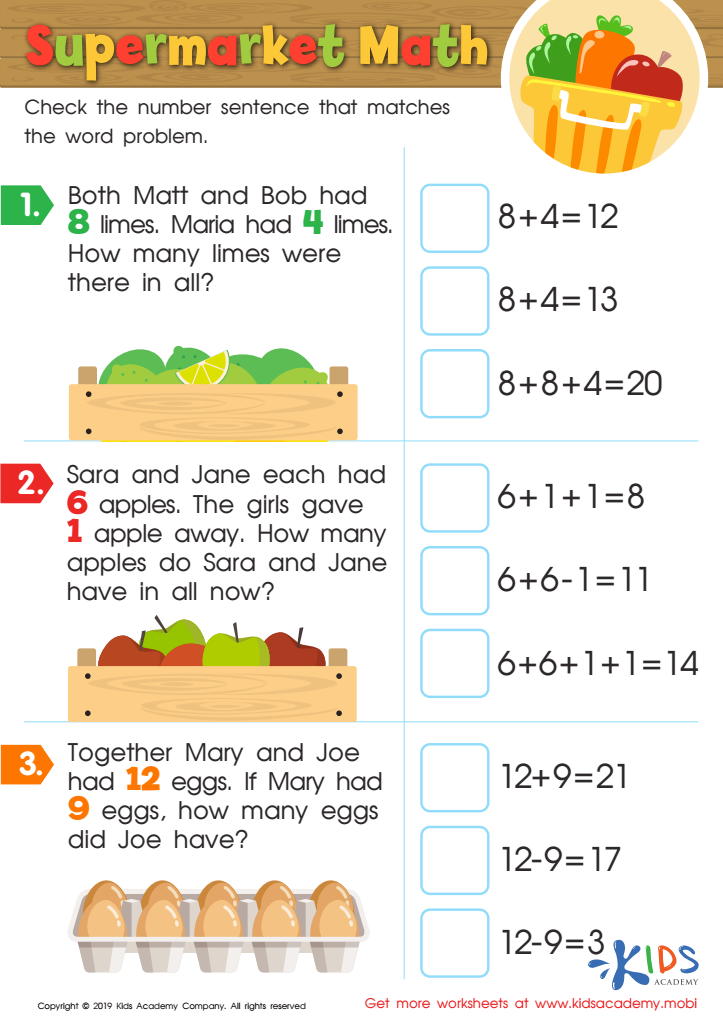

Supermarket Math Worksheet
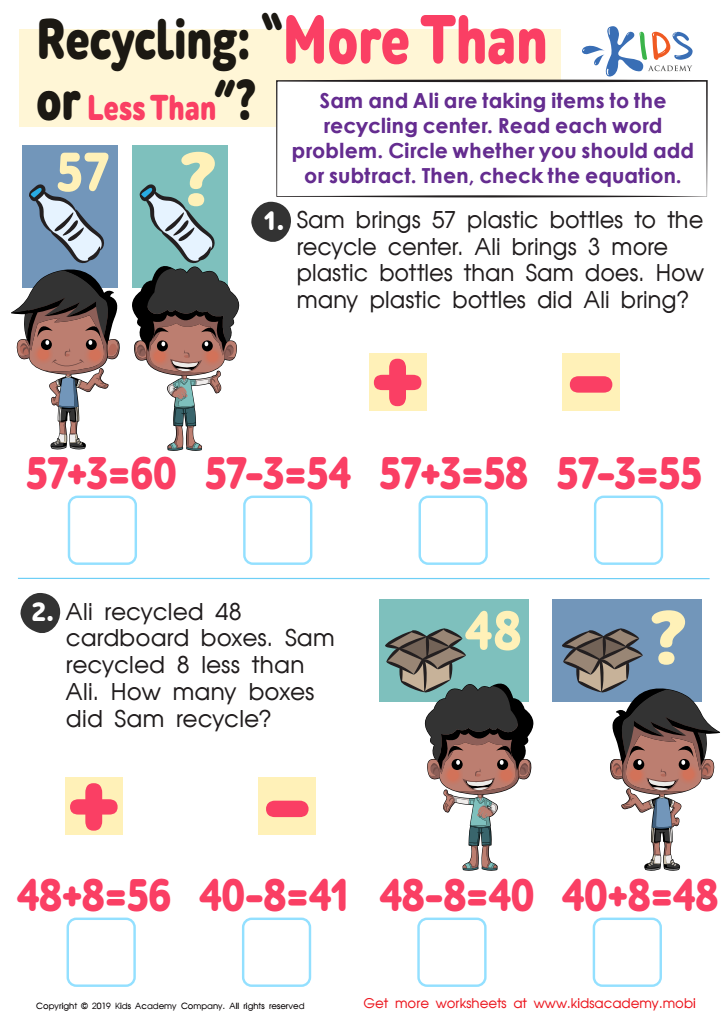

Recycling - More or Less Worksheet
When it comes to the early development of a child's cognitive skills, normal addition and subtraction word problems play a critical role. For ages 3-6, engaging with these problems does more than just introduce basic math concepts; it helps lay a foundation for critical thinking and problem-solving skills. At this tender age, children's brains are exceptionally absorptive, often compared to "sponges," making it an ideal time to introduce fundamental math concepts in a manner that is both fun and educational.
Word problems, in particular, offer a dual benefit. They blend literacy with numeracy, ensuring that children not only grasp the mathematical operations but also understand how to comprehend and analyze text-based narrative situations. This crossover of skills promotes better comprehension and communication abilities, as children learn to articulate the process of solving problems.
Moreover, solving addition and subtraction word problems helps children develop a sense of numbers and their relationships, which fosters numerical fluency and confidence. Beyond academics, these skills translate into real-life contexts, such as sharing toys or distributing snacks, making math both relevant and practical.
Conversely, a lack of early exposure to these fundamental concepts might lead to anxiety or difficulties in later years. Hence, parents and teachers should prioritize normal addition and subtraction word problems to nurture well-rounded, mathematically confident children.
 Assign to My Students
Assign to My Students








